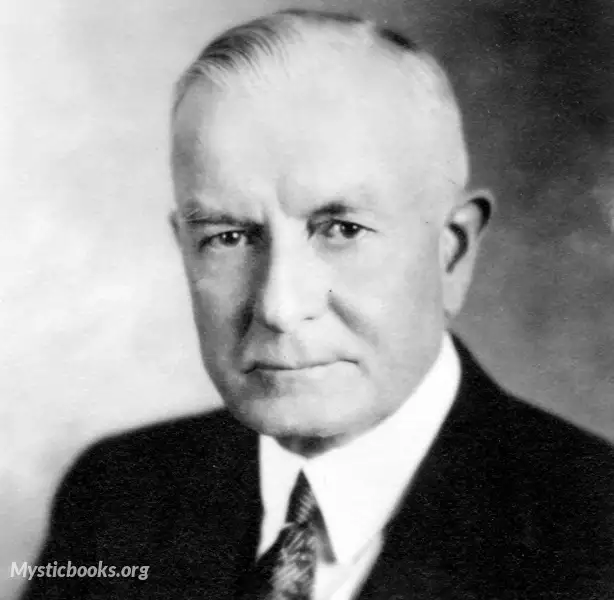
Timeline
Title
Country/Nationality
Thomas Watson
Thomas John Watson Sr. was an American businessman. He served as the chairman and CEO of International Business Machines (IBM). He oversaw the company's growth into an international force from 1914 to 1956. Watson developed IBM's management style and corporate culture from John Henry Patterson's training at NCR. He turned the company into a highly effective selling organization, based largely on punched card tabulating machines. A leading self-made industrialist,[4] he was one of the richest men of his time and was called the world's greatest salesman when he died in 1956.
Thomas J. Watson was born in Campbell, New York, the fifth child and only son of Thomas and Jane Fulton White Watson. His four older siblings were Jennie, Effie, Loua, and Emma. His father farmed and owned a modest lumber business located near Painted Post, a few miles west of Corning, in the Southern Tier region of New York. Thomas worked on the family farm in East Campbell, New York and attended the District School Number Five in the late 1870s. As Watson entered his teen years he attended Addison Academy In Addison, New York.
Having given up his first job—teaching—after just one day, Watson took a year's course in accounting and business at the Miller School of Commerce in Elmira. He left the school in 1891, taking a job at $6 a week as bookkeeper for Clarence Risley's Market in Painted Post. One year later he joined a traveling salesman, George Cornwell, peddling organs and pianos around the farms for William Bronson's local hardware store, Watson's first sales job. When Cornwell left, Watson continued alone, earning $10 per week. After two years of this life, he realized he would be earning $70 per week if he were on a commission. His indignation on making this discovery was such that he quit and moved from his familiar surroundings to the relative metropolis of Buffalo.
Watson served as a powerful trustee of Columbia University from June 6, 1933, until his death. He engineered the selection of Dwight D. Eisenhower as its president and played the central role in convincing Eisenhower to become president of the university. Additionally, he served as a trustee of Lafayette College and is the namesake of Watson Hall, a campus residence hall.
In 1936 the U.S. Supreme Court upheld a lower court decision that IBM, together with Remington Rand, should cease its practice of requiring its customers to buy their punch cards from it alone. The ruling made little difference because IBM was the only effective supplier to the market, and profits continued undiminished.
In 1937, Watson was awarded the Order of the German Eagle by Adolf Hitler. Watson was also president of the International Chamber of Commerce in 1937; the medal was awarded while the ICC was meeting in Germany that year.
In 1939, he received an honorary degree in Doctor of Commercial Science from Oglethorpe University.
In the 1940s, Watson was on the national executive board of the Boy Scouts of America and served for a time as an international Scout commissioner. E. Urner Goodman recounts that the elderly Watson attended an international Scout commissioners' meeting in Switzerland, where the IBM founder asked not to be put on a pedestal. Before the conference was over, Goodman relates, Watson "... sat by that campfire, in Scout uniform, 'chewing the fat' like the rest of the boys". He received the Silver Buffalo Award in 1944. His son, Thomas Jr., later served as national president of the Boy Scouts of America from 1964 to 1968. He was also inducted into the Steuben County (NY) Hall of Fame. Throughout his life Watson continued to own and enjoy the family farm on which he was born. In 1955 he and his wife gave it, along with one million dollars, to the Methodist Church for use as a retreat and conference center, to be named Watson Homestead in memory of his parents. Watson Homestead became independent of the church in 1995, and continues as a conference and retreat center. The one-room school that Watson attended as a child is still on the grounds.
Books by Thomas Watson

A Divine Cordial (All Things for Good)
This book is an exposition of Romans 8:28: "We know that all things work together for good to them that love God, to them who are the called according to his purpose." It was written in 1663, one year after Thomas Watson and many other Puritan minist...

Art of Divine Contentment
This book is a classic work on the topic of contentment. Written by Puritan minister Thomas Watson, it explores the nature of contentment and how to live it out in the Christian life. Watson examines the text of Philippians 4:11, "I have learned, in...

Body of Practical Divinity
Thomas Watson's Body of Practical Divinity is a collection of 176 sermons on the Assembly's Catechism, a summary of Christian doctrine. It was published posthumously in 1692 and has since become a classic work of Puritan theology. Watson's sermons ar...